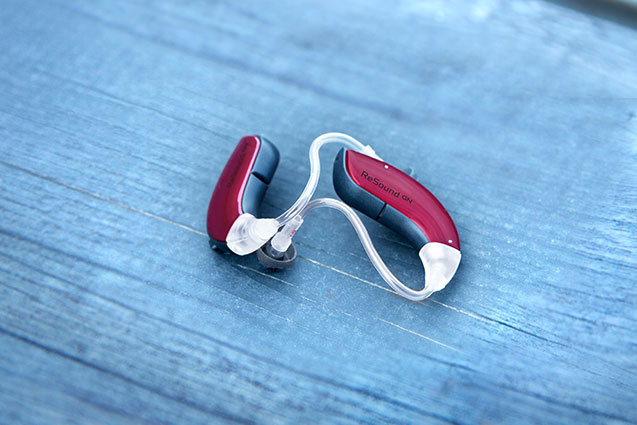Two Hearing Aids are Better than One

Hearing aids can often be costly, and are often not covered by private insurance agencies. This can often cause people to grow reluctant when it comes to purchasing two hearing aids, and people may grow tempted to simply invest in one hearing aid to rectify the hearing loss in a single ear only.
Doctors recommend obtaining two hearing devices for multiple reasons. Despite their cost, hearing aids are actually an investment that can save you from problems in the future and keep your hearing health at an optimal level.
Obtaining two hearing aids provides you with a better sound quality. Wearing a single hearing aid in one ear tends to make the sounds lopsided and uneven, which can be disruptive. On the other hand, wearing two hearing aids provides you with binaural summation, which means that you will be able to hear sounds more loudly and equally in both ears. You can gain an additional 10 decibels of sound through the use of two hearing aids, which can lead to an enriched hearing experience and quality of sound.
Your brain requires equal information input from both ears in order to process sound correctly. Wearing two hearing aids can help your brain process sounds at a faster and more accurate rate, especially in noisy environments where more auditory input is necessary to interpret sounds and eliminate background noises.
With two hearing aids, your brain will also become more efficient at localization, which means that you will be able to identify the source and origin of a sound better than if you were simply wearing a single hearing aid. This enables you to have a higher chance of safety, especially in crises situations which require emergency evacuations, such as during fire alarms. It also enables you to locate the speaker and become more actively involved in conversations when you are able to correctly identify the source of the conversation. Wearing two hearing aids also helps you gauge the distance and spatial aspects related to auditory objects within your surroundings, which provides you with more information about interacting with your environment.
Two hearing aids can help you hear sounds at a much clearer and amplified level and leads to enhancements in speech quality. A single hearing aid tends to skew your sense of hearing since the ear without the hearing aid perceives sound at a much slower and duller rate. Bilateral amplification of sound obtained from two hearing aids provides you with a much clearer, richer, and smoother hearing experience.
Another major problem with wearing a single hearing aid is auditory deprivation, which occurs from the constant strain placed on the unaided ear since it needs to work overtime to try and process the sounds which the ear with the hearing aid is hearing effortlessly. This constant strain on the unaided ear can further deteriorate your hearing since it gradually loses its ability to distinguish speech. A 1999 study found that almost 25% of participants with unilateral fittings (i.e. people wearing a single hearing aid) tended to have auditory deprivation in the ear without the hearing aid. Speak to your audiologist to make sure you rectify the hearing in both your ears.

